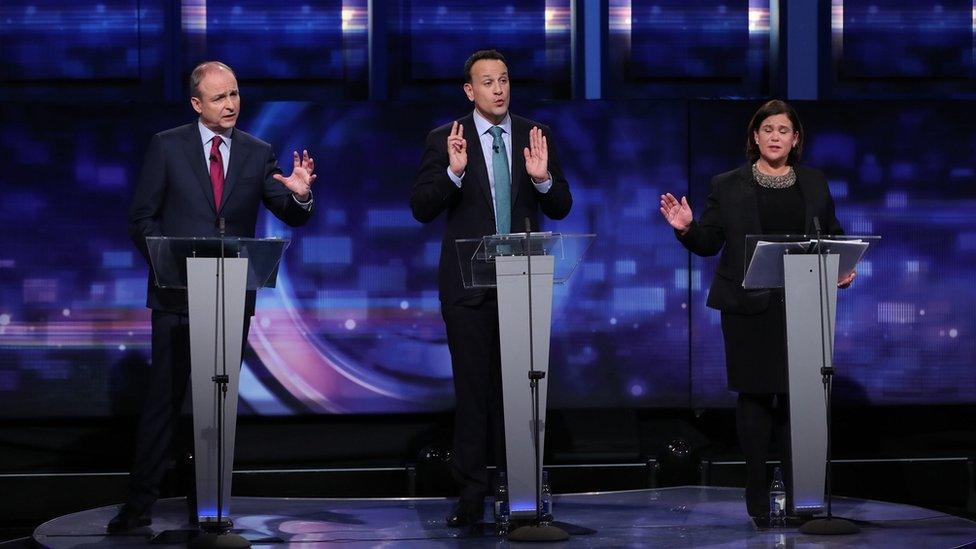Irish general election profile: Leo Varadkar
- Published
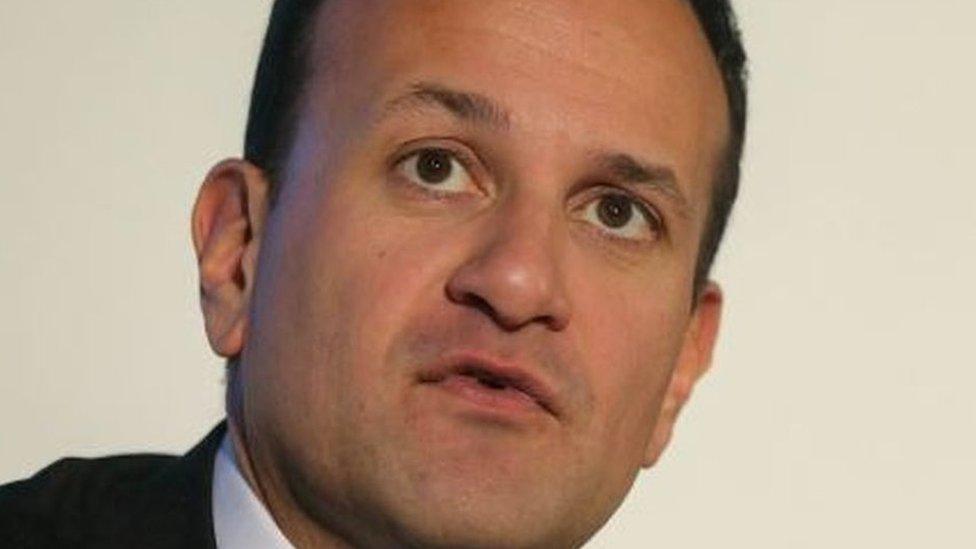
As taoiseach (Irish prime minister), Leo Varadkar has probably had a higher international profile than any of his predecessors.
A gay man and the son of an Indian immigrant doctor, he helped the Republic of Ireland achieve its Brexit goals and avoid a hard border on the island.
That success, he and many others believe, helps to cement the Irish peace process and the 1998 Good Friday Agreement after decades of civil unrest in Northern Ireland and more than 3,000 murders.
But like many politicians, he has found to his cost that he may be more popular abroad than he is at home.
The Fine Gael leader may have been celebrated for his role in embodying the liberalisation of a country that was once regarded as one of the most socially conservative in Europe.
But it remains to be seen if his achievements on abortion rights for women and playing a leading role on marriage equality will count much for voters in the 2020 general election.
It is true that the Irish economy is in a very healthy place with virtual full employment, but recent polls suggest the electorate wants change after nine years of Fine Gael government and action on housing, homelessness and the health system.
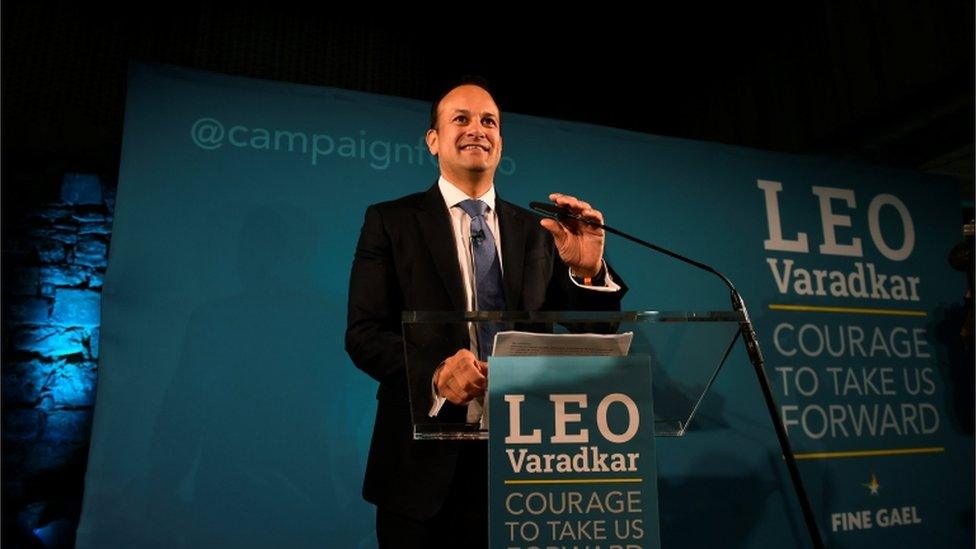
In 2015, Leo Varadkar came out as gay in an interview with the Irish national broadcaster RTÉ
In the interview in which he publicly announced he was gay, he also said that he didn't want to make politics a life-time vocation.
Mr Varadkar was born in Dublin on the 18 January 1979.
His father Ashok, a Hindu doctor from Mumbai, met his mother, Miriam, an Irish nurse from Waterford, while they were both working in Slough in Berkshire.
They settled in Ireland in the 1970s and although the young Leo was raised a Catholic, he was sent to a fee-paying private Church of Ireland school.
He followed in his father's footsteps and qualified as a doctor; Mr Varadkar's partner, Matt Barrett, is also a doctor.
But Leo Varadkar always appeared more interested in politics than medicine.
As a young man, he was seen as being quite right-wing but moved more towards the centre ground as his political career progressed.
'Straight talker'
In 2007, he was elected to the Irish parliament, Dáil Éireann, and held a series of ministries, including health, before succeeding Enda Kenny as Fine Gael leader and taoiseach in 2017.
As part of his leadership campaign he was criticised for promising to champion "those who get up early in the morning"; it was seen as a dig against those on social welfare.
But for his admirers, it was further proof that their man was a straight talker.
At 38, Leo Varadkar became Ireland's youngest taoiseach and was seen as part of a new dynamic group of world leaders including French President Emmanuel Macron and Canadian Prime Minister Justin Trudeau.
Irish voters did not give him a personal mandate when he was elected taoiseach in a party vote in 2017.
With Brexit, in his words, "still only at half-time", he's still young enough to return as taoiseach.
- Published6 February 2020
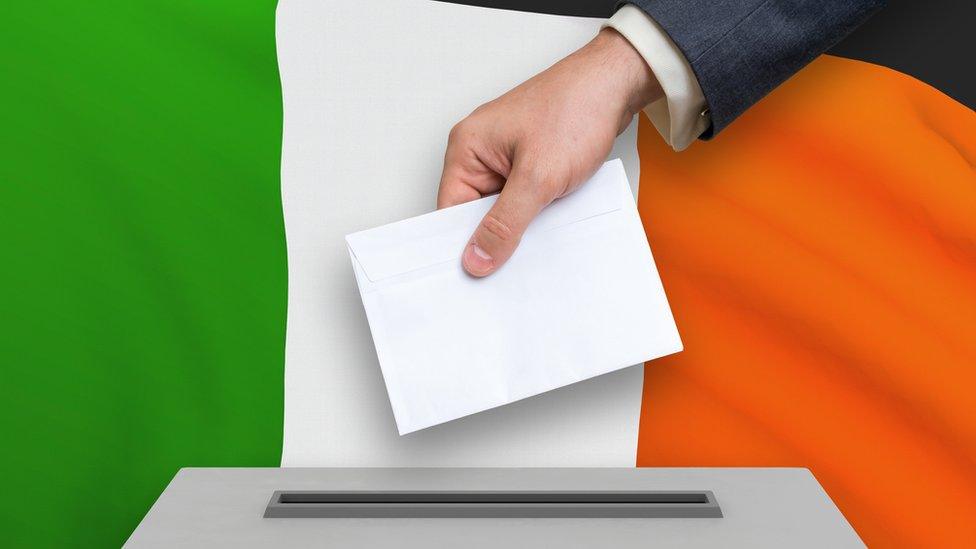
- Published3 February 2020
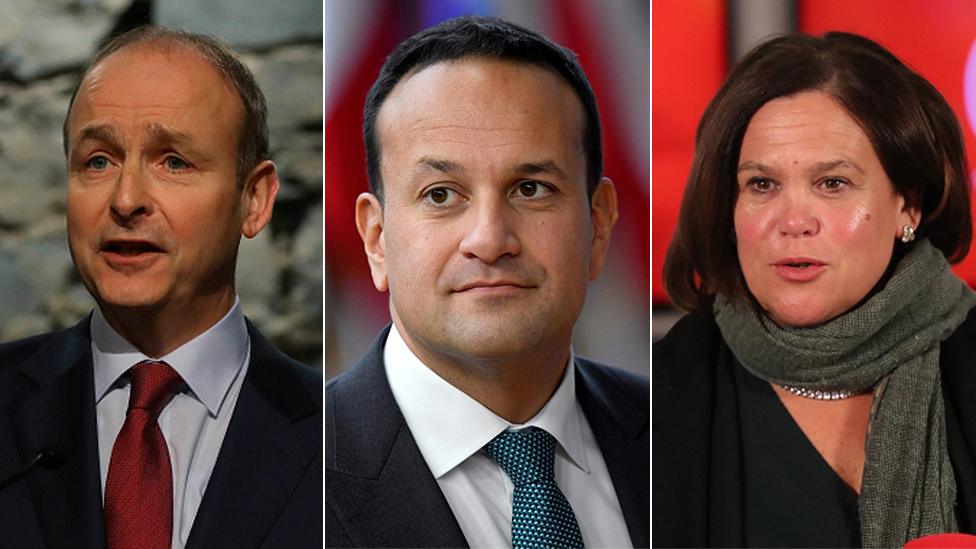
- Published13 February 2020
